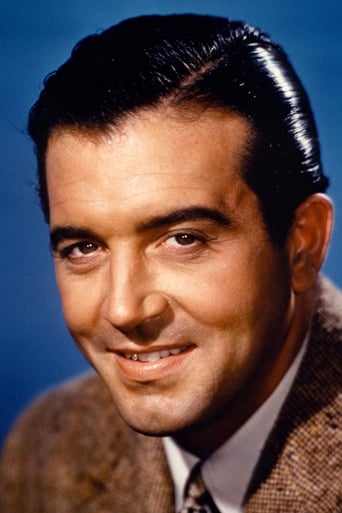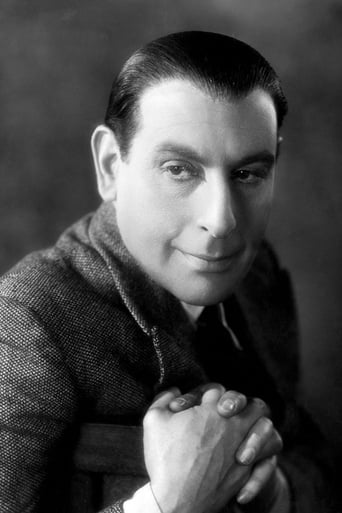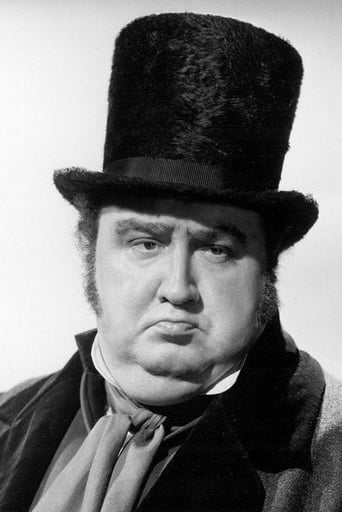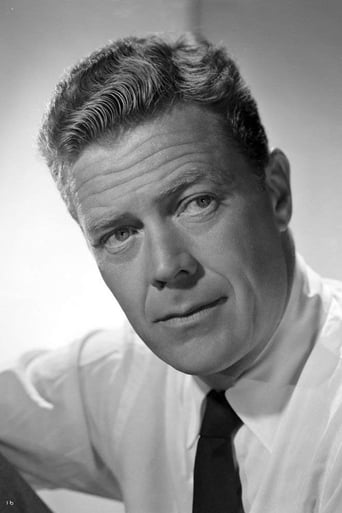Lucybespro
It is a performances centric movie
GurlyIamBeach
Instant Favorite.
Fairaher
The film makes a home in your brain and the only cure is to see it again.
Mathilde the Guild
Although I seem to have had higher expectations than I thought, the movie is super entertaining.
jarrodmcdonald-1
Recently I watched CARIBBEAN, a 1952 Paramount production starring John Payne. It's on Amazon Prime. Not sure what I expected, but it was much better than a Technicolor swashbuckler/melodrama almost has any right to be. The performances were very good. John Payne is a handsome, dependable lead across a variety of genres but we usually don't think of him in the way that we think of Brando or other much-lauded actors. Yet he does some of his best work here, giving a very honest, sensitive and touching portrayal of a prisoner caught between two madmen waging war on an unnamed Caribbean island. What makes the story even more interesting is that Payne's character falls for a young woman who is the daughter of both men. Yes, that's what I said. Watch the film and you'll see what I mean.The female lead is played by Arlene Dahl, and she gives what I think is her best performance in any film. She's beautiful, feisty and vulnerable. At the end, she is caught in a scene of domestic violence and the story ends without her knowing the truth about her two fathers. Most actresses would have a tough time with this sort of story, but she excels.Back to the two dads for a minute. One of them is played by Cedric Hardwicke. He did a variety of roles in his long stage and screen career. So he comes to CARIBBEAN with vast amounts of experience. He easily could chew the scenery with the type of part he's playing here, but he keeps it all very dignified. He takes what is basically a cold-blooded killer and makes us sympathize with him. I have never liked a villain so much in a movie as I did with him here. That's a testament to Hardwicke's gifts as a dramatic interpreter of this material. The other paternal figure in the story is portrayed by robust Francis L. Sullivan. He could have turned his character into a cartoonish nincompoop, but he infuses just the right amount of edginess and civility. Even when he is ordering two prisoners to fight each other to the death with knives before a crowd of spectators, as if it were an everyday event (maybe it was for him). The film has quite a number of things going for it. The direction is precise throughout, the Technicolor visuals are well photographed and there is a great subplot involving the slaves on the island that seems very much ahead of its time.
BILLYBOY-10
Pirate Sir Cedrick Hardwick is seeking revenge on fatso who ruined him and took his young daughter 21 years ago so he outfits John Payne to impersonate fatso's nephew and ingratiate himself with him so Hardwick can invade his island fortress and run him through and reclaim his daughter, the feisty redhead Arlene Dahl. Payne does so and in the meantime Dahl falls for him even tho she knows him to be her first cousin. Oh well, its the days of yore and what the heck, first cousin or no, she's got the hots. The native slaves on the island are in an uproar as well, so Payne helps them to revolt, Harwick lands and does in fatso but then Dahl does in Hardwick; she doesn't know Hardwick is her real father and Hardwick makes Payne promise to never tell her and so Dahl and Payne walk off into THE END. This movie has terrible direction and even worse editing, but it is in living Technicolor and fatso has great duds so its OK. And it's not really a high seas pirate movie, it's more like a soapy drama taking place during pirate times with pirate ships and cannons and rubber swords.
mhrabovsky1-1
This little ditty is one good little pirate tale.....saw this movie in the early 50s in Detroit and it made the rounds through the 50s and early 60s as a second feature on double bills at the theaters and drive ins....must have seen it about 4 times or so then....John Payne who made his mark in "Miracle on 34th Street" is cast as a hunter named Dick Lindsay in some remote caribbean locale who is hunting ducks when he suddenly comes upon two pirates and a slave who will be digging a hole to bury some pirate loot. Payne is suddenly attacked and taken prisoner on a local pirate captain's boat and sent to the brig....not known to him is the pirate captain (Cedric Hardwicke) is plotting to send an impersonator to another pirate's locale to infiltrate the island and tell Hardwick all of the island's weak points for a future raid.....Francis L. Sullivan, a character actor of the 40s and 50s is the rival pirate captain and slave owner named Andrew McCalister. Payne accepts the job to spy on Sulivan's empire for promise of a large amount of money and freedom.....upon arriving at the island Payne finds the local slaves are badly abused by Sullivan and a foreman/taskmaster named Shively (Willard Parker).... Of course a lovely lady is on the island to tempt Payne, the scorching Arlene Dahl (her and Rhonda Fleming, red headed look alikes)...unbeknowing to Dahl is that she is really the daughter of the rival pirate captain Hardwick....the tale is that Hardwick and Sullivan had a parting of the ways and Sullivan (Andrew McCallister) stole Hardwicke's money, power and position and forced him to be a pirate, all the while taking his infant daughter (Dahl) as his own supposed daughter. Payne appears to be up for this role, usually one that would suit Earl Flynn...in fact this film has a lot of resemblances to Flynn's classic - "Captain Blood"...... On the island Payne must become a bastard part of the McCallister family and plot to overthrow the McCallister empire at the same time. A very good knife fighting duel between Payne and Shively near the end and Payne puts him away....Payne's identify is discovered by the shrewd Andrew McCallister and in the end the pirate captain Barclay (Hardwicke) overtakes the island and puts McCallister, his arch enemy away...in the process Hardwicke is killed and implores Payne at his side never to tell Dahl that she is his real daughter. Arlene Dahl was a staple in these early 50s drama adventures, ala Patricia Medina and also starred with her future husband a year later in the pirate tale "Sangaree" Fernando Lamas....Franicis L. Sullivan played a heavy in "Sangaree" also. All in all this is a very enjoyable pirate/adventure drama.....although Flynn, Fernando Lamas, or maybe Tyrone Power could have handled the role better.
dinky-4
The first person to review "Caribbean" on this site correctly points out that it isn't really a pirate movie. Instead, it starts out as a potentially-intriguing drama about an impersonator. Cedric Hardwicke -- as part of a revenge plot -- grooms John Payne to assume the identity of Francis L. Sullivan's nephew, even going so far as to have a scar burned into Payne's skin which matches one on the nephew's face.It's typical of this movie's haphazard nature, however, that its "impersonator" angle is so carelessly handled. There is no scene of Payne being trained to play his role, for example, and once he assumes it, there is no scene of him being tested by any unexpected circumstances. Indeed, the fact that Payne is impersonating someone else soon becomes an inconsequential element of the plot, and the scene when he finally admits he's not Sullivan's nephew is casually tossed away.The original reviewer is also correct in pointing out that Payne, as an actor, is not skilled at bringing out the dual nature of an impersonator. He's too "straightforward." (If "Caribbean" were to be made today, Ewan MacGregor, with his sly humor and restless intelligence, would be a more appropriate choice.) Payne is also at least ten years too old for this part, and thus it's amusing to hear him referred to as "the boy" or addressed as "m'lad."By the early 1950s, John Payne had moved away from the clean-cut young man who romanced the likes of Betty Garble, Alice Faye, and Sonja Henie in Fox musicals. Pushing 40, he began to toughen up his image by appearing in crime dramas, westerns, and pirate movies. "Caribbean" is an obvious attempt to increase his "macho" rating during this transitional period. In it, he's involved in two fistfights and a knifefight, sports a beard in one scene, and is given several opportunities to appear bare-chested. Unlike most of his films of the 1940s, his chest has no longer been shaved and powdered to a boyish smoothness but now sprouts a healthy growth of black hair across the pecs. In his best "beefcake" scene, a sweaty Payne is shown stripped to the waist while he's forced to "walk" his way up a constantly revolving waterwheel. (Even in middle-age, Payne has the kind of fine physique which might appeal to both male and female viewers.)The sadomasochism of this waterwheel scene never reaches the point of actual torture but the dialog in "Caribbean" often threatens Payne with gruesome violence. Cedric Hardwicke says to him: "I'll scatter your brains all over the deck." Willard Parker says: "If your name weren't MacAllister, I'd have you spreadeagled and left for the vultures." Arlene Dahl says: "You're lucky he didn't flay you alive!" And Francis L. Sullivan says: "Another word and I'll have your traitorous tongue torn out by the roots." Curiously, despite all these threats to turn Payne's body into a temple of pain, the movie's sole flogging has a black female slave as its victim. The original reviewer perceptively mentions two faults in the movie's script: absolutely no information is given about Payne's background, (did he leave a family behind when he was abducted?), and his romance with Arlene Dahl is hurried and unconvincing. Dahl simply isn't "lovable" because her character is so artificial and her part is so woefully underwritten.On the other hand, Cedric Hardwicke and Francis L. Sullivan make good villains and one wishes they'd had more scenes together. However, the pledge which the dying Hardwicke extracts from Payne doesn't make for an appropriate climax and thus the movie's ending seems both flat and abrupt. The battle which precedes this ending also seems a bit tiresome since the audience isn't inclined to root for either side."Caribbean" does have snatches of good dialog, however. When the ship's surgeon, for example, says: "If my hand misses, I'd chop it off myself" -- Hardwicke replies: "That might be difficult to do without a head." And when Dahl asks Payne: "Will the gentlemen like me?" -- Payne replies: "Yes. Until they get to know you."Incidentally, "Caribbean" is based on a novel by Massachusetts-born Ellery Clark who won two gold medals at the 1896 Olympics in Athens.




